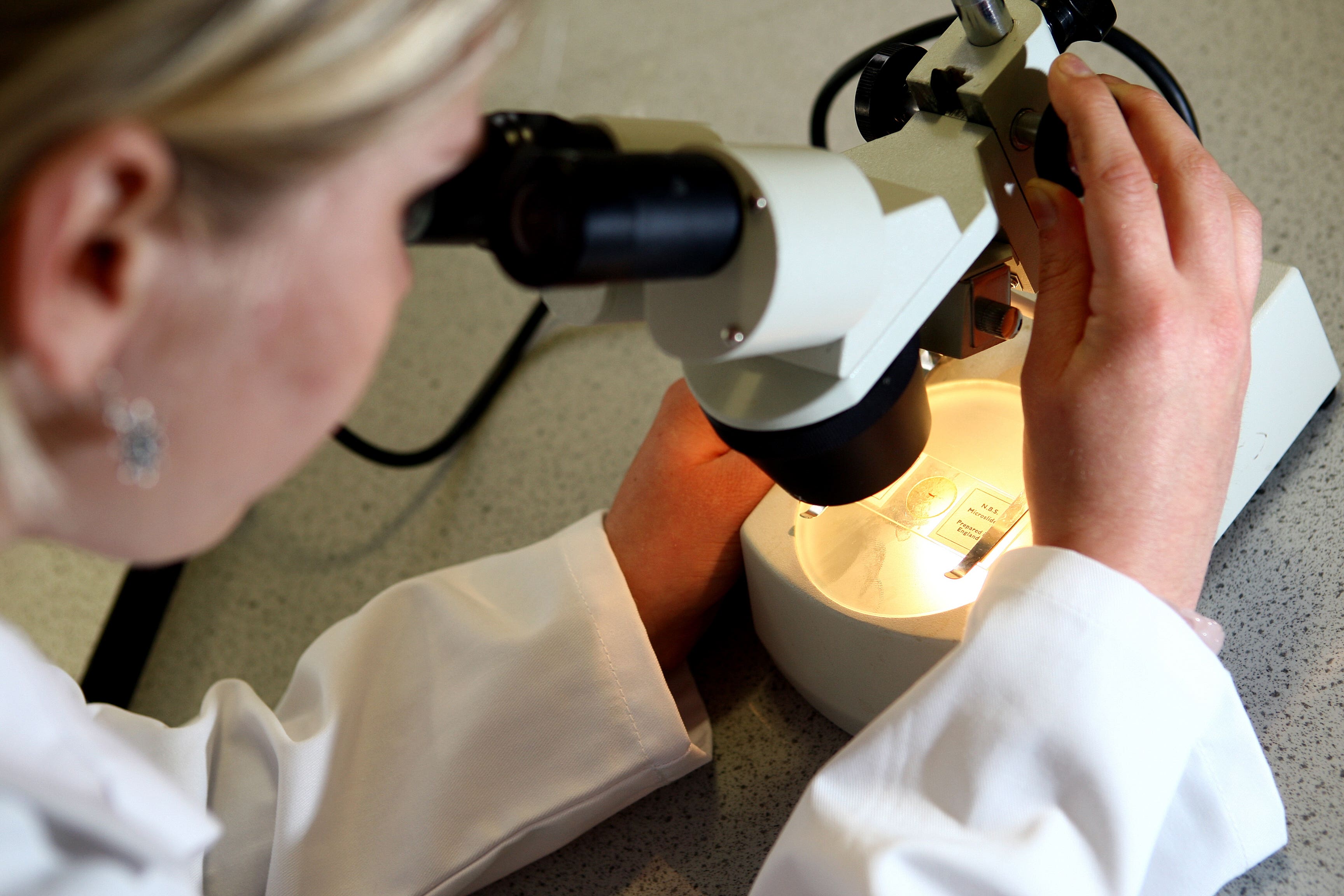Women with high-risk HPV more likely to die of heart disease or stroke – study
Researchers said doctors should monitor those with high-risk strains of the virus, particularly if they are obese or have other risk factors.

Your support helps us to tell the story
From reproductive rights to climate change to Big Tech, The Independent is on the ground when the story is developing. Whether it's investigating the financials of Elon Musk's pro-Trump PAC or producing our latest documentary, 'The A Word', which shines a light on the American women fighting for reproductive rights, we know how important it is to parse out the facts from the messaging.
At such a critical moment in US history, we need reporters on the ground. Your donation allows us to keep sending journalists to speak to both sides of the story.
The Independent is trusted by Americans across the entire political spectrum. And unlike many other quality news outlets, we choose not to lock Americans out of our reporting and analysis with paywalls. We believe quality journalism should be available to everyone, paid for by those who can afford it.
Your support makes all the difference.Women with high-risk human papillomavirus could be almost four times more likely to die of heart issues, a study suggests.
The virus could be causing inflammation in the blood vessels, contributing to blocked and damaged arteries, researchers said.
Human papillomavirus (HPV) are a group of viruses which can be transmitted through sexual contact and cause no symptoms.
Some 13 types of HPV are known to cause 99.7% of cervical cancers.
To examine if the virus is a potential risk factor for heart problems, researchers gave 163,250 Korean women with no cardiovascular disease a number of health checks.
The mean age of the cohort was 40 and they returned for health screening every year or two for an average of eight and a half years.
The team discovered that women with high-risk HPV were 3.91 times more likely to have blocked arteries and 3.74 times more likely to die of heart disease. There was also a 5.86 times greater risk of dying from a stroke.
It could be that the virus is creating inflammation in the blood vessels, contributing to blocked and damaged arteries and increasing the risk of cardiovascular disease
The risk was higher still in obese women with high-risk HPV, researchers found.
The study was led by professors Seungho Ryu, Yoosoo Chang and Hae Suk Cheong, from the Sungkyunkwan University School of Medicine in Seoul, South Korea.
Prof Cheong said: “We know that inflammation plays a pivotal role in the development and progression of cardiovascular disease, and viral infections are potential triggers of inflammation.
“HPV is known for its link to cervical cancer, but research is starting to show that this virus can also be found in the bloodstream. It could be that the virus is creating inflammation in the blood vessels, contributing to blocked and damaged arteries and increasing the risk of cardiovascular disease.”
He added that the study, published in the European Heart Journal, “highlights the importance of comprehensive care for patients with high-risk HPV”.
“Clinicians should monitor cardiovascular health in patients with high-risk HPV, particularly those with obesity or other risk factors,” Prof Cheong said.
“It’s important for people with high-risk HPV to be aware of the potential for both heart disease and cervical cancer risks. They should engage in regular health screenings and adopt a healthy lifestyle to mitigate their risk of cardiovascular disease.”
Researchers said in the absence of “specific antiviral drugs targeting HPV” and the “limited pharmaceutical interventions for inflammation” associated with the virus, more “research is warranted to explore potential vaccine strategies” aimed at reducing high-risk HPV, along with the “potential use of anti-inflammatory drugs” for HPV associated with cardiovascular disease.
A vaccine for HPV has been offered to all year 8 girls in the UK since 2008 and was rolled out to include year 8 boys in 2019.
The success of the jab, along with the cervical screening programme, is expected to lead to the eradication of cervical cancer in England in the coming decades.
In November, NHS England chief Amanda Pritchard vowed the disease would be eliminated by 2040.